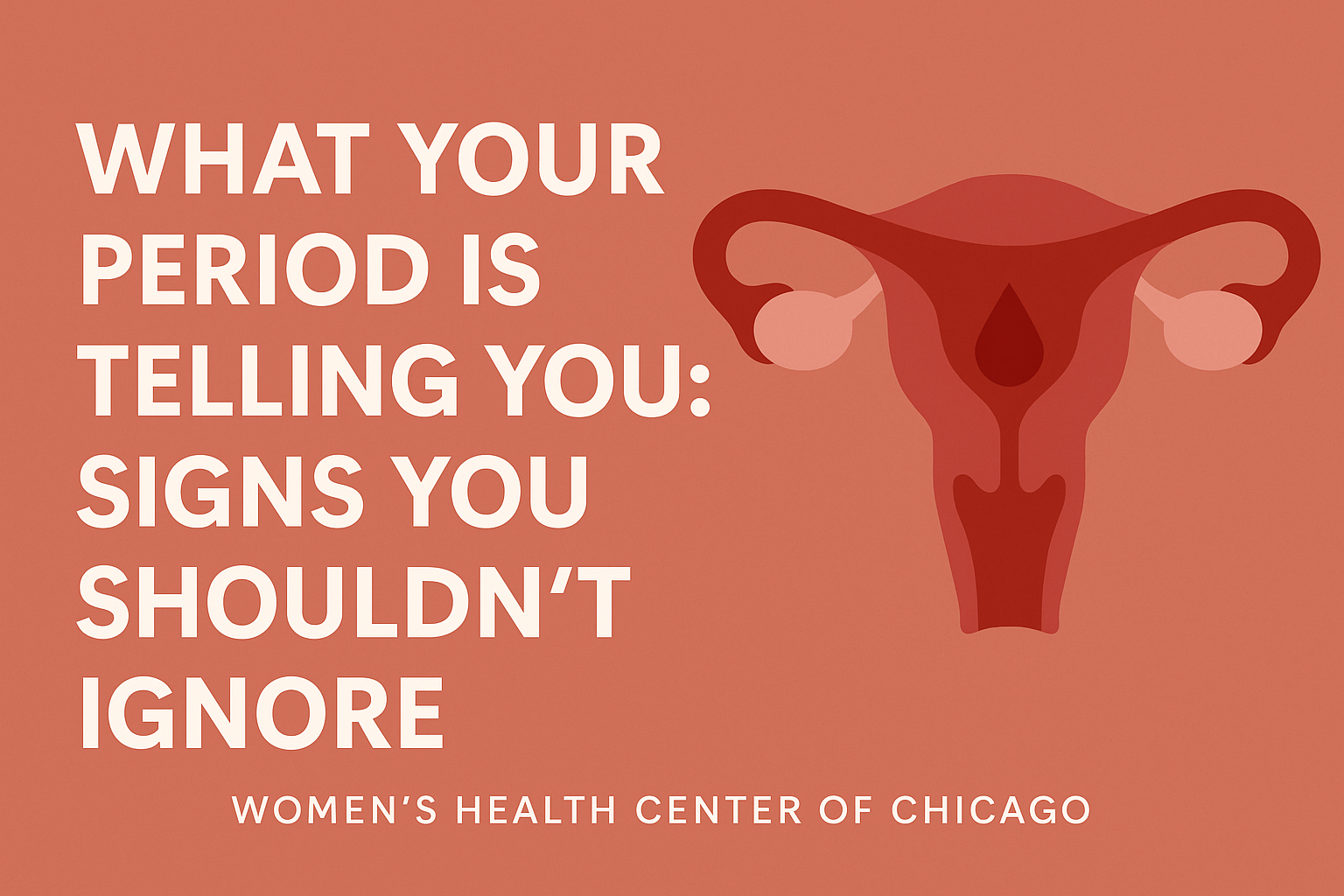Your menstrual cycle is more than a monthly inconvenience—it’s a powerful indicator of your overall health. Changes in your flow, timing, pain levels, or symptoms could be trying to tell you something important.
In this blog, we’ll help you understand which period-related signs are normal and which ones mean it’s time to talk to your OB-GYN.
1. Irregular Periods: When “Normal” Becomes Unpredictable
It’s common to have a cycle that varies slightly month to month. However, if your periods:
Regularly come too early or too late
Last less than 2 days or more than 8
Or disappear completely (outside of pregnancy or menopause)
…it could point to underlying issues such as PCOS, thyroid dysfunction, stress, or even early menopause. Don’t assume it’s “just stress” until you’ve spoken with your doctor.
2. Heavy Bleeding (Menorrhagia): When Flow Becomes Excessive
If you’re soaking through a pad or tampon every hour, passing clots larger than a quarter, or needing to double up on protection, that’s not normal.
Heavy bleeding could signal:
Uterine fibroids
Hormonal imbalance
Bleeding disorders
Or, in rare cases, cervical or uterine cancer
Ignoring heavy periods can lead to anemia and severe fatigue. Get it checked.
3. Severe Cramps: More Than Just “Bad Period Pain”
Mild to moderate cramping is expected—but debilitating pain that interferes with work, school, or daily activities is not.
Severe cramps may be caused by:
Endometriosis
Adenomyosis
Pelvic Inflammatory Disease (PID)
If over-the-counter meds don’t help, it’s time to schedule a visit.
4. Spotting Between Periods: Not Just a Fluke
Spotting may be harmless, but repeated or unexplained spotting between cycles can signal:
Hormonal imbalances
Ovulation issues
Birth control side effects
Or warning signs of infection, polyps, or even cervical cancer
Always keep track of spotting and mention it during your GYN visit.
5. Missing Periods (Amenorrhea): What Your Body May Be Saying
Missing a period isn’t always pregnancy-related. It can also be linked to:
Stress and eating disorders
Thyroid issues
Extreme exercise
Premature ovarian insufficiency (POI)
Going 3+ months without a period (and not pregnant) is a red flag and needs a full hormonal workup.
6. Unusual Color or Odor: What’s Normal and What’s Not
Period blood can range from bright red to dark brown—both normal. But if you notice:
Gray discharge
Foul odor
Sudden changes in texture
…it could be a sign of bacterial vaginosis, STIs, or other infections.
7. Period-Related Mood Swings or Debilitating Fatigue
Hormones impact your brain as well as your body. Severe PMS, PMDD (premenstrual dysphoric disorder), or extreme energy crashes may be more than just monthly blues.
There are treatments available—don’t suffer in silence.
When to See a Doctor
Make an appointment with your OB-GYN if you experience:
Sudden changes in your cycle
Pain that stops you from living normally
Periods that are too frequent, too rare, or too long
Signs of infection (odor, fever, gray discharge)
Any bleeding after menopause
💬 Let’s Talk About It—Together
You don’t have to guess what’s normal and what’s not. Your body has a voice—your period is part of it. Let our expert OB-GYN team at the Women’s Health Center of Chicago help you understand and take control of your cycle.
👉 Book your appointment today and get personalized care designed around you.






